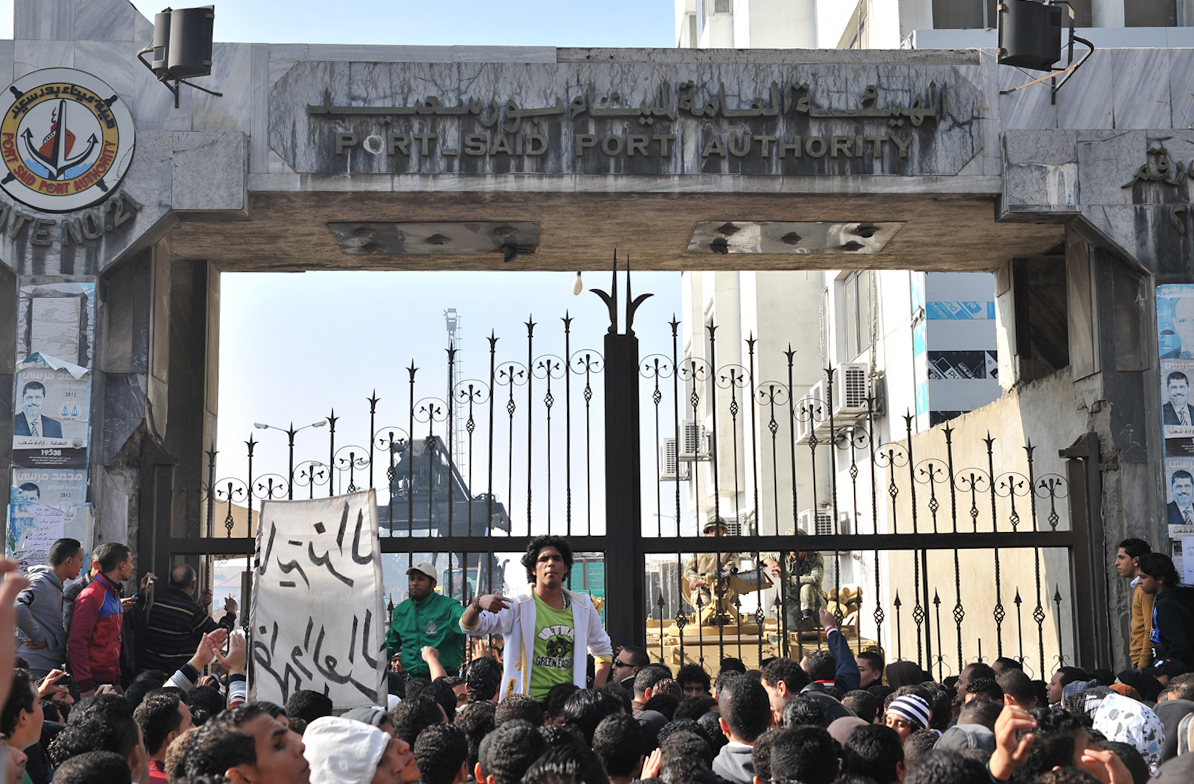By Marwa Al-A’asar
CAIRO: Prime Minister Ahmed Shafiq resigned Thursday from his post, about eight hours after being fiercely criticized by a number of outspoken guests during a live TV talk show.
The military council ruling Egypt assigned former Minister of Transport Essam Sharaf to form a new caretaker government.
“The Supreme Council of the Armed Forces announces that it has accepted the resignation of … Shafiq,” the council said in a statement published on its page on Facebook, without giving reasons for the move.
No cabinet reshuffle was announced till press time, though speculations indicated that Foreign Minister Ahmed Aboul-Gheit, Justice Minister Mamdouh Maree, Interior Minister Mahmoud Wagdy and Minister of Immigration and Manpower Ismail Fahmy would be replaced by other technocrats.
Dozens of youth activists who are still camped out in Tahrir Square celebrated after Shafiq’s resignation was announced.
Opposition leader Mohamed ElBaradei welcomed Shafiq’s resignation.
On the mini-blogging website Twitter, he said, “Today old regime has finally fallen. We are on the right track. My appreciation to the SCAF for listening to the people [sic].”
Shafiq, the former civil aviation minister and a fighter pilot, was appointed on Jan. 29 by ousted president Hosni Mubarak to lead the government in a bid to appease the thousands of protesters who took to the streets of Cairo and other governorates calling for toppling the regime.
After Mubarak stepped down on Feb. 11, the military council ordered the government to run the country’s affairs for six months “or until the end of parliamentary and presidential elections.”
Yet opposition leaders and activists have been pressing the army to remove Shafiq and the interior, foreign and justice ministers, arguing that they were sworn in by an ousted president and questioning his loyalty and competence.
Shafiq’s successor, Sharaf, a Cairo University professor of highway engineering, was a transport minister from July 2004 to December 2005, when he resigned following a major train accident and amid differences with then-premier Ahmad Nazif.
Sharaf reportedly took part in the anti-regime protests during the Jan. 25 Revolution among other university professors in Tahrir Square a few days before Mubarak resigned.
Sharaf has received several local and international awards for his scientific research.
A coalition of activists had put forward Sharaf’s name during talks with the military on Sunday when they also called for rapid, profound changes.
“We are happy, we had proposed his name and our demand has been accepted,” Shadi Al-Ghazali Harb, one of the leaders of the youth movement, told AFP.
The prompt acceptance by the military of Shafiq’s resignation shows the sensitivity of the ruling generals to the demands of the uprising’s leaders, but many in Egypt now believe the military should put its foot down and focus on restoring law and order in this country of 80 million people.
Egypt has been gripped by a crime wave it had not seen in living memory, with a marked rise in armed robberies, arson and street battles between rival criminal gangs over territory. Demoralized and hated by many for their perceived brutality against protesters, security forces have yet to fully take back the streets. They numbered around 500,000 on the eve of the protests.
The military police, meanwhile, has stepped in to fill the vacuum, but its personnel don’t have the intelligence capabilities or the manpower to efficiently police the country.
Beside security, one of the main tasks now facing Sharaf is to revive the economy hard hit by the protests. The stock market has been closed for more than a month and foreign tourists have only begun to trickle back in small numbers. Investor confidence has been badly hit too by the dozens of criminal investigations into corruption allegations against senior officials from the former regime.
During “Baladna Bel-Masry” (Our Egyptian Homeland) TV talk show broadcast on ON TV that ended a little after 2 am, Shafiq and his government were severely criticized by the other guests including former talk show host and columnist Hamdy Qandil and award-winning novelist Alaa El-Aswany, with whom he engaged in a heated argument.
While Al-Aswany accused Shafiq of “political affiliation to the Mubarak era”, Shafiq said his achievements had nothing to do with the former president.
“Hosni Mubarak did not take part in the battles I fought. He even reaped the fruits of my success,” Shafiq said, denying that he was ever a member in Mubarak’s ruling National Democratic Party (NDP).
Al-Aswany also slammed Shafiq for keeping a number of ministers rejected by the people including those of foreign affairs and justice. Shafiq indicated that it wasn’t his decision to keep them.
While Al-Aswany and the other guests including Qandil and high-profile businessman Naguib Sawiris called for dismantling the state security services, Shafiq expressed respect for the controversial entity, suggesting restructuring and separating it from the interior ministry.
Shafiq further claimed he did not know about the attacks against protesters in Tahrir by thugs riding camels and horses on Feb. 2 at the time they were happening. The attack, which lasted for about 20 hours, was reported live on several satellite news channels and was watched by millions of viewers in Egypt and around the world.
Calls for holding an open strike outside cabinet demanding an end to the government were received by enthusiastic online responses throughout the show.
Al-Asway asked Shafiq to resign, saying that he himself will protest against him and his government in Tahrir Square.
One Shafiq aide said appointing Sharaf was timed to defuse calls for another mass rally by protesters on Friday after a first modest reshuffle by Shafiq failed to mollify protesters who want a clean break with the Mubarak era.
“This is a shocking and premature resignation. There have been pressures from the streets that he quit,” one of Shafiq’s aides told Reuters, asking not to be identified.
“There was fear of Friday’s protests and how big they may be. He actually wanted to leave before this week as well and does not want to agitate the people,” the aide said.
Nabil Abdel-Fatah, director of Al-Ahram Center for Political and Strategic Studies, told Daily News Egypt that the TV program was “the straw that broke the camel’s back,” preceded by wide calls to sack Shafiq.
“There was a call … to change Shafiq … being part of the former regime, a fact he attempted to deny yesterday,” he said.
According to Abdel-Fatah, rumors in the past few days claimed that Shafiq would be sacked in a bid by the army to appease the Youth Coalition of the Jan. 25 Revolution.
Thousands of online activists were quick to voice support for Sharaf creating a page for him on Facebook, while others urged him to take his service oath in Tahrir Square.
However, following Shafiq’s resignation, online activists said on twitter that only one of their requests has been met so far.
Thousands are planning to protest in Tahrir on Friday to call for other demands, including but not limited to, terminating the emergency law, imposed since the assassination of President Anwar Al-Sadat in 1981, and dismantling the state security services. –Additional reporting by Yara Enany and Agencies

